Silent League - Interview with Justin Russo
by Benjamin Howarth
published: 5 / 1 / 2005
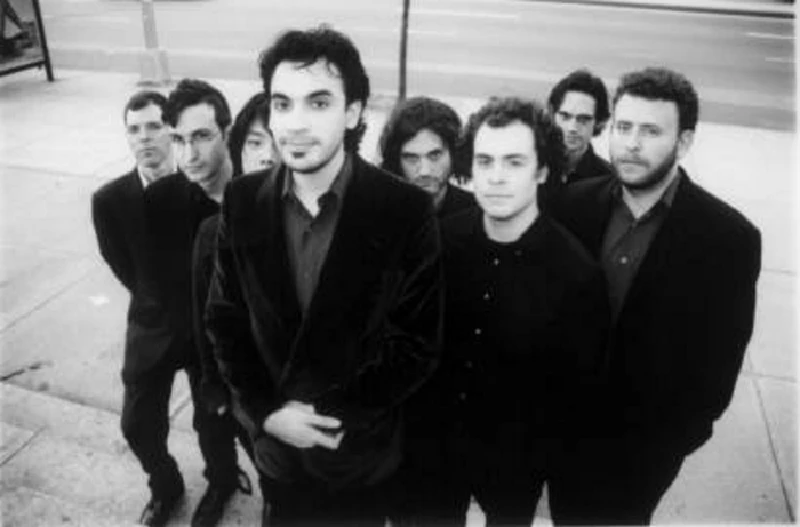
intro
The Silent League's Justin Russo provided many of the arrangements and piano parts on Mercury Rev’s 'Deserter’s Songs'. He talks to Ben Howarth about his new band's debut album, 'The Orchestra, Sadly, Has Refused'
Between 1997 and 2000, the Album made a comeback. Perhaps it was a swansong. A series of classic albums appeared on our shelves that soundtracked our pre-millennial hopes and fears in a way that 'Pet Sounds', 'Revolver' and 'Forever Changes' feel like they soundtracked the 60's. A collection that runs from Spiritualized’s masterpiece 'Ladies And Gentlemen We Are Floating In Space' through to the Flaming Lips 'The Soft Bulletin', and from the untouchable 'OK Computer' to the unimaginable 'Kid A', all the way to Modest Mouse’s 'The Moon And Antarctica'. Not least among these was Mercury Rev’s beautiful 'Deserter’s Songs'. Justin Russo was a crucial part of that album’s lush sound, and he has now returned with a new band, the Silent League. Their debut album 'Sadly, the Orchestra Has Refused' is a gem, and aims for universal appeal over the narrow stylisation of much of the music that filters through 2005. Pennyblackmusic spoke to Justin about his ambitions for this band and his desire to make music, despite his hatred of the record industry processes that entails. PB : I’ll begin by asking how this band/project the Silent League began. How did it all come together and what made you want to start it? JR : Well, that’s a great first question, Ben! Luckily, I’ve been asked so many times that I have my answer memorised now. The Silent League more or less came out of my experience with Mercury Rev, touring and working on 'Deserter’s Songs' and 'All Is Dream'. What I really found from those days was a kind of oppression from some aspects of the music industry. I was very idealistic at that time and I wanted to make a record that spoke in the same language as 'Deserter’s Songs' did but had a different theme. I wanted to concentrate on a loss of innocence, which is the prevalent memory of that tour for me. I also wanted to make the kind of record that could be a road map for musicians who wanted to go into the record industry and not fall into every one of the traps or pitfalls that I certainly fell into. With the opening track, where I am saying “Who took my radio?”, what I am really saying is, what happened to my initial feeling about what being in a band and going on tour would be like. I likened it to something very exciting when I was younger, groupies and fame. Everybody wants crowds at their door but nobody is really prepared for what happens next. What happened with me is that I ended up not liking it. PB: Surely there were positive aspects, parts that made you want to carry on with the music in spite of all the negative elements? JR: Well, I have no problems with Mercury Rev. I love Jonathan Donahue and the band. There are no personal problems and we’ll always be good friends. That’s something I want to get on record! The problems were more my experiences with the music industry. They agree with me. That tour was a big jump for Mercury Rev as well, and there was a lot of pressure that none of us had really seen before. PB: 'Deserter’s Songs' was a massive commercial breakthrough for the band. JR: It really was. They were in every major magazine. From the old days it was a very big jump and to be put in that position was tough for everybody. I remember a conversation with Jonathan at the end of the 'Deserter’s Songs' tour, asking what direction he was going to go as a songwriter, and he replied, “you know, it doesn’t matter, they’re going to hate it anyway”. I actually left the tour feeling I have to answer that feeling. My record does end positively, and says you can enter a place where you can survive in the record industry, which is also where Jonathan is. I think you’ll see with 'The Secret Migration' that Jonathan is actually in a very comfortable place, and I am too. So both bands have a good future! PB: Were you conscious of the fact that there are similarities between the work you did for Mercury Rev and the music on 'The Orchestra, Sadly, Has Refused' ? Does it worry you? JR: I couldn’t worry about that. 'Deserter’s Songs' will always be on my top ten ‘most influential’ records and I was with them when they did that. I was so close to them. I think the media is obviously going to hone in on who I was previously associated with, just as Mercury Rev will always be linked to the Flaming Lips, but that doesn’t mean that those artists are sitting at home worrying about what the media is going to say. I sound like Mercury Rev because I was IN Mercury Rev! But I think close listens will reveal that the similarities are limited. I tried to be honest with myself as a songwriter and even omitted a couple of songs because they might sound a little more like Mercury Rev than others. PB: Are you more proud of this record than your achievements with Mercury Rev? JR: Sure man, it’s my baby! PB: Also, do you get more out of leading a band in a live environment than you did as part of the backing musicians, or do you find it more nerve wracking? JR: I like it a lot more. Leading a band that is playing songs that are really your own, and you get people behind you, it’s a really wonderful thing and I’m actually more comfortable on stage than I’ve ever been. PB: On the album there is an extensive cast of guests, almost a who’s who of New York, but when you play live it is cut down to a more solid touring line up of nine. On the recording of the second album, will you use the touring band or continue to have guests? JR: I’m happy having all the guests. I like having everybody around and I like having the contributions. That’s how you get all the variety on the record. I did try and attract a lot of contributors, so you can trawl through it later. It’s always interesting to push your ideas off on somebody else and the more you do that the more experience you get. But, it’s also more fun! PB: When guests come into the studio, do you already know what they are going to contribute to the record, or are you looking for their ideas? JR: Do you mean, do I crack the whip? PB: Ha ha! I guess I was trying to put it in a nicer way! JR: Yeah, I crack the whip! I can annoy people! I actually had a lot of members of the Rev in, but I ended up only keeping what Grasshopper was doing, because it kind of fitted. I think you need, as a musician, a clear idea of what you want and you need to put everything else aside. If somebody comes into the studio, and it’s somebody else’s thing, they need to understand that. They might end up on the cutting room floor if they don’t play what you want them to play. PB: Are you writing as you go along in the studio or are the songs finished beforehand? JR: I wrote all the songs on the 'Deserter’s Songs' tour and I think you can hear that they had time to develop. PB: Was there a clean break between doing that tour and doing the record? JR: Well, I formally quit Mercury Rev right before they started the 'All Is Dream' tour, because it wasn’t a sacrifice I was willing to make, because the Silent League record was already forming. I didn’t have a band yet, but I had done a lot of the preliminary recordings and I played a few of the tracks to the Rev fellows, and it was like, “go do your thing!” PB: At the moment, you have a ‘normal’ job as well as leading the Silent League. Do you think you’d give that up if you had the opportunity? JR: Well, if I could be paid to write songs, if someone would do that, it would be great. But its 2005 and we’ve all seen the changes in the music industry, so I’m not sure how easy that’s going to be. If someone wants to donate their almighty dollar, that’s fine! Some people already have. I get to record, and I get free trips! But I’m not holding my breath for more and its not going to destroy me if it doesn’t happen. I’ll always write… PB: How is the second album coming along? JR: The material is pretty much ready to go, and we’re thinking of a certain producer, to be announced, and it’s going well. I want to take a late Frank Sinatra direction. It should be terrific! PB: Is it strange working on a second album, whilst in Britain your debut is only just set for release? JR: Yeah, it’s been out for eleven months in the US. It is strange; it went out into the morass that is the US public and disappeared. But I hope, correct me if I’m wrong, but I honestly think that the UK has a better understanding of what good music is, and they’re more likely to pay attention to it. PB: We like to think so! JR: I’m really hoping it does better there. PB: I suppose 'Deserter’s Songs' broke in the UK first and the momentum carried over there… JR: Yeah, it wasn’t selling well in the US at all, and anything significant happened in England, Ireland and France. PB: How did you get into contact with the labels you work with? JR: Well, the UK label Something In Construction is run by the guy who runs Nude, and I had some contact with him from my Rev days. As for the US, I’m a big fan of the website Epitonic and I always support what they do, so I sent them my music to hear, and it turned out they had a label as well. I didn’t want a major label push for the first album, out one week and disappeared the next. I wanted to build and that’s what I think I’m doing. PB: Obviously, Epitonic is a download service. What do you feel about Internet music, about a scenario where people would download one or two tracks and not necessarily listen to the whole album? JR: That’s interesting that you bring that up, because I did recently have a chat with some people about that. I think that it is strange in a way, but it’s almost as if we’re almost moving back to a single orientated music industry. Its funny how we went to albums and now the audience is moving in another direction. I’m as much at a loss as anybody else is to predict where we’re going to go in the future and how that will affect me. I think the Silent League is the kind of band where if you download one track you can be hungry for more. If you downloaded a track from 'Quadrophenia', it might be different. A lot of artists are on a song by song basis these days, though, aren’t they? PB: Yes, it seems like it. Perhaps not the Fiery Furnaces but most others! Do I take it that your album was more a collection of songs and less a conceived entity? JR: No, to be honest, I did set out to make more or less a concept record around the idea that something was being lost around the goal of achieving your dreams. I deliberately set out to make it that way and that is why I hesitated when answering your question. But I think, in the end, you can take the songs apart and get different ideas. PB: Were there any particular literary concepts or writers that inspired your lyrics, or was it a question of being as simple as possible? JR: I’m a great believer in accessibility. I suppose I only make them as complicated as they need to be. I prefer to make something valuable for other people. In my life, music is the way I choose to do that. If I was making websites or working a day job, if I felt I could have as much of a positive impact doing that then I wouldn’t do music. Perhaps one day I’ll want to make it more complex, go in the vein of Nick Cave, perhaps get out there and start talking about planets and comets, then I will? PB: When did you start playing music, did you have formal training? JR: No, I didn’t. My brother taught me to play the keyboard when I was 21. I’d known Rev for years as we’re from the same town, but I actually took the job as keyboard player when I was 23, and I couldn’t even play with 2 hands! My brother told me, if the music is happy play the white keys, and if it sounds sad, play the black, (laughter), it works! PB: Do you have any studio expertise or do you rely on producers? JR: I’d like to give you a website, www.tindrum.com, Max Lichtenstein who is the off again on again co-producer for the Silent League. We did the first album together and it’s likely we’ll do the second. He’s a good man! PB: To tie things over, if you were looking back at your time in music, would you be satisfied and what would be your disappointments? JR: To get this far, in this day and age, is enough of an achievement. I feel like I’ve done the impossible, to have more than one person listen to my songs is enough for me. But if I could I’d give that person a megaphone and get lots of people to hear what we have to say because I truly believe that the message is good. We’re not just trying to make pop, we’re trying to say something good PB : Thank you.
Picture Gallery:-
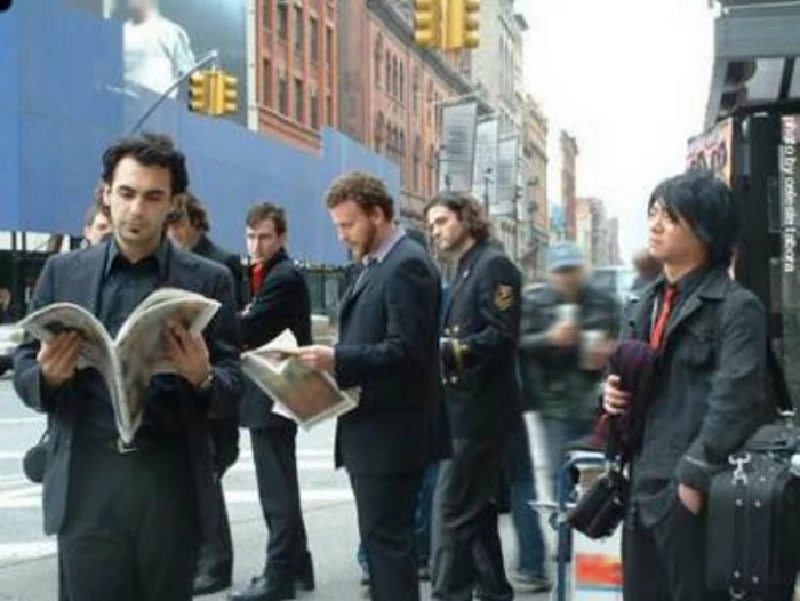
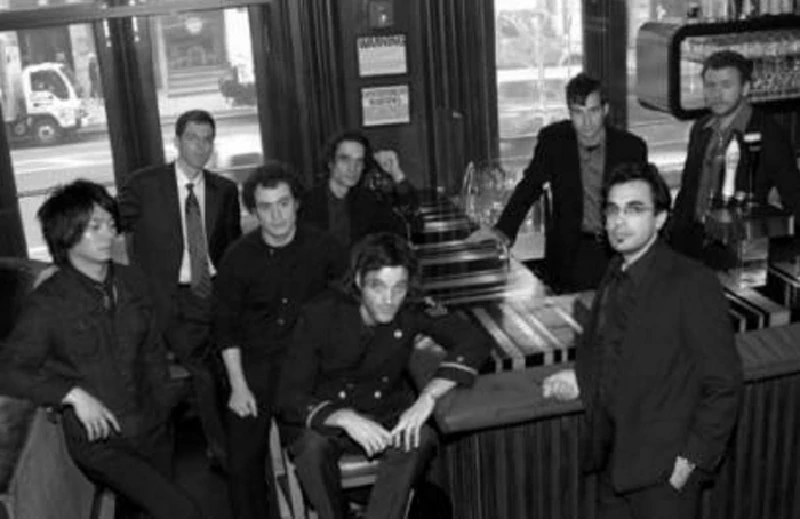
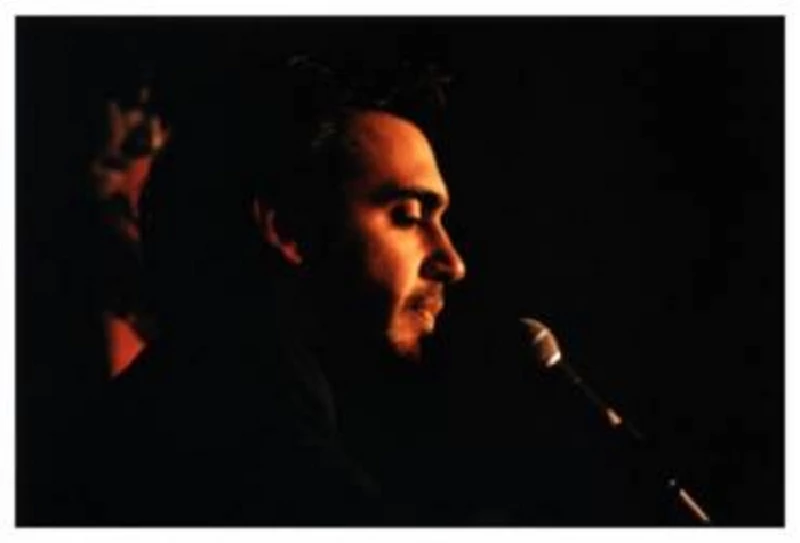
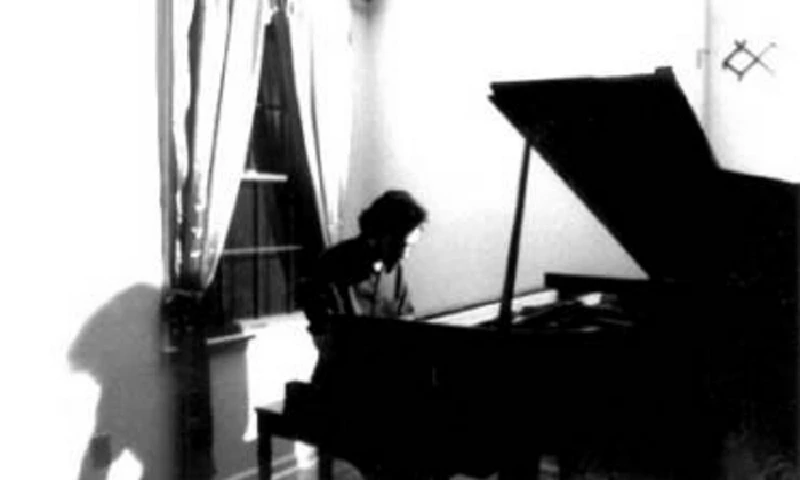
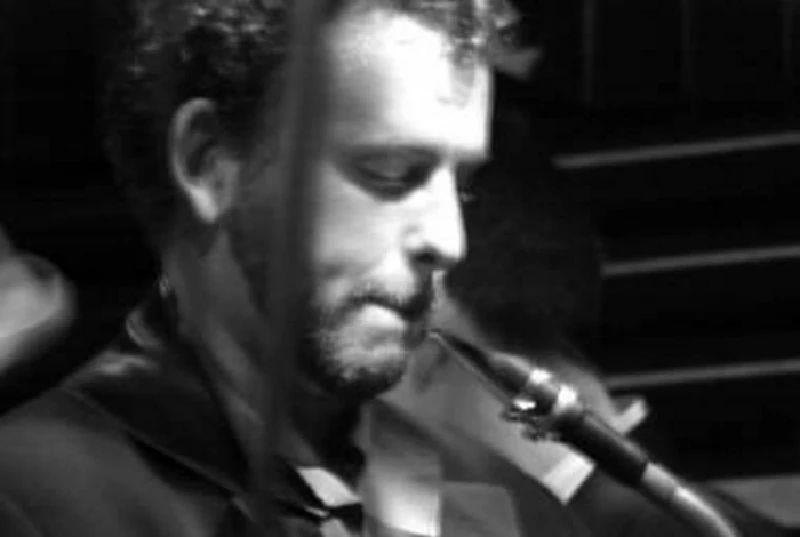
reviews |
|
Breathe (2004) |
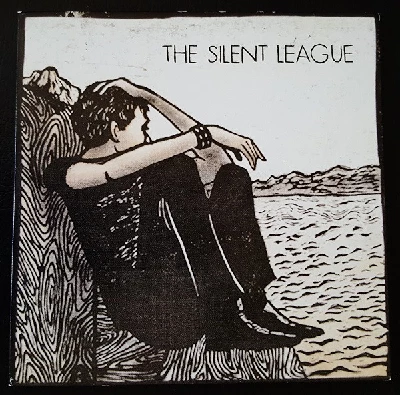
|
| Promising debut single from New York indie act the Silent Age, whose frontman and pianist Justin Russo also provided the keyboards on Mercury Rev's 'Deserter's Songs' |
most viewed articles
current edition
Carl Ewens - David Bowie 1964 to 1982 On Track: Every Album, Every SongArmory Show - Interview with Richard Jobson
John McKay - Interview
Colin Blunstone - Thalia Hall, Chicago, 16/7/2025
Billie Eilish - O2 Arena, London, 10/7/2025
Bathers - Photoscapes 1
Visor Fest - Valencia, Spain, 26/9/2025...27/9/2025
Loft - Interview
Sir Tim Rice - Interview
Robert Forster - Interview
previous editions
Manic Street Preachers - (Gig of a Lifetime) Millennium Stadium, Cardiff, December 1999Heavenly - P.U.N.K. Girl EP
Beautiful South - Ten Songs That Made Me Love...
Boomtown Rats - Ten Songs That Made Me Love....
Peter Perrett - In Dreams Begin Responsibilities Interview Part One
Oasis - Oasis, Earl's Court, London, 1995
Trudie Myerscough-Harris - Interview
Coldplay - Wembley Arena. London, 16/8/2022
Prolapse - Interview
Pixies - Ten Songs That Made Me Love...
most viewed reviews
current edition
Davey Woodward - Mumbo in the JumboSick Man of Europe - The Sick Man of Europe
Lucy Spraggan - Other Sides of the Moon
Suzanne Vega - Flying With Angels
Amy Macdonald - Is This What You've Been Waiting For?
Phew, Erika Kobayashi,, Dieter Moebius - Radium Girls
Bush - I Beat Loneliness
Blueboy - 2
Alice Cooper - The Revenge of Alice Cooper
Cynthia Erivo - I Forgive You
Pennyblackmusic Regular Contributors
Adrian Janes
Amanda J. Window
Andrew Twambley
Anthony Dhanendran
Benjamin Howarth
Cila Warncke
Daniel Cressey
Darren Aston
Dastardly
Dave Goodwin
Denzil Watson
Dominic B. Simpson
Eoghan Lyng
Fiona Hutchings
Harry Sherriff
Helen Tipping
Jamie Rowland
John Clarkson
Julie Cruickshank
Kimberly Bright
Lisa Torem
Maarten Schiethart